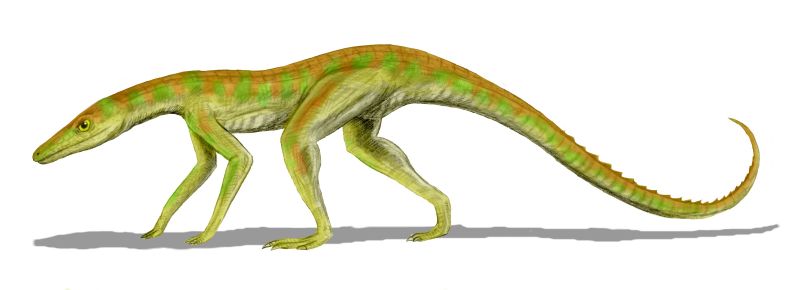Crocodiles have been around for millions of years, and whilst they’re often thought of as being relatively unchanged since their origin, two new studies have revealed that they in fact have a rich and diverse evolutionary history.
Origin story
In one of the studies, researchers were able to trace back the origin of Crocodylomorpha – the wider group of crocodilians and their now-extinct relatives – to around 145 million years ago in Europe. After that, somewhere in North America, the group split further into those that could tolerate saltwater and those that couldn’t – crocodiles and alligatorids, respectively.
“It looks like the ability to cross saltwater bodies has allowed crocodiles to become much more widely dispersed than alligators: crocodiles are found all over the world, including in tropical oceans, whereas alligators are confined to freshwater and unable to reach some areas,” explained Professor Paul Barrett, a palaeontologist at the Natural History Museum in London who worked on both papers, in a statement.
They grow up so fast
The second paper examined how quickly ancient crocodilians may have grown. Compared to the slow-moving, slow-growing image we have of modern crocodiles, it turns out their ancient relatives were the opposite. Researchers uncovered this from fossilized bone structures indicating high-growth rates, suggesting they grew fast and moved fast.
Of course, modern crocodiles still get speedy when there’s prey involved, but otherwise, they seem far more partial to slow living. Why did that switch happen?

Terrestrisuchus, a strictly land-living ancestor of modern crocodiles, is thought to have been a fast runner.
“The first question was: is the slowdown in growth because of the crocodiles’ aquatic habits, or does it predate this?” said Barrett. “And secondly, at what point in the evolution of crocodiles do they switch off their ancestrally high metabolism and re-evolve what looks like a reversion to a more primitive slow-growing condition?”
Fossil evidence identified a small, active, and land-living ancient relative that grew at a speed similar to living crocodilians, which potentially rules out the aquatic theory. The researchers suggest that slow growth may instead have evolved as the result of living in a resource-poor environment, although that’s still up for debate.
An image makeover?
Regardless, this research may change the oft-thought image of crocodiles as lethargic creatures unchanged by time. “Crocodiles and their relatives were really experimenting with lots of different ways of life,” said Barrett. According to the palaeontologist, some ancient members of Crocodylomorpha were meat-eaters like their descendants, but preyed on dinosaurs, whilst others were strictly herbivores – veggie crocodiles, who’d have thought?
Simosuchus, an ancient vegetarian relative of the modern crocodile, is brought back to “life” in this clip.
“They’re doing a surprising number of things. This is in great contrast to what we know about living crocodiles, which are all predators limited to living in the tropics with semi-aquatic or amphibious lifestyles.”
“Living crocodiles are really a pale shadow of the diversity that they and their relatives had in the past.”
The studies are published in Royal Society Open Science and Current Biology.
Source Link: Ancient Crocodile Relatives Reveal Surprisingly Diverse And Complex Evolutionary Past